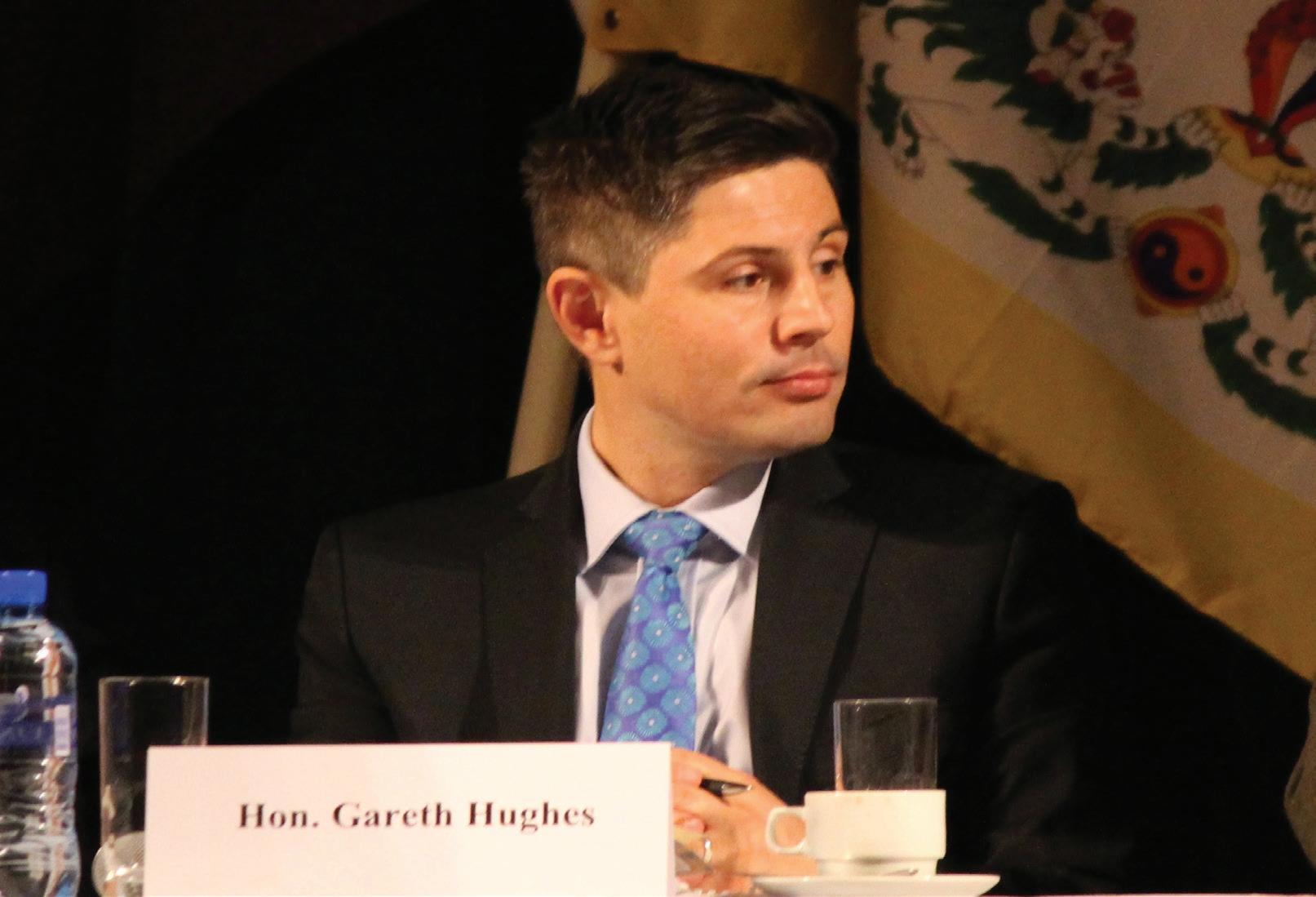
3 minute read
Hon. Gareth Hughes, MP New Zealand
important foreign policy issue of the day in USA, in Canada, in Australia and in the UK and that is the issue of rising Chinese power. Although Tibet is very popular with the liberal and conservative people in all of their countries, the governments take into consideration much more Chinese economic and military power and there is a �ight on so many issues in New Zealand as well as Australia with the Chinese sharp power. The use of propaganda, agitation, newspapers, Confucius Institutes all coordinated by this United Front Department in Beijing.
Gareth Hughes
Advertisement
I will give you very brief New Zealand perspective on those three questions in terms of the Tibetan issue; I think New Zealand has a very warm and popular feeling towards the cause of Tibetan autonomy. I think we have a very able representative in New Zealand for many years, Thupten Kalsang and a very good representative in Canberra. At the parliamentary level we have seen huge turnout when His Holiness the Dalai Lama came to New Zealand in places like Australia, in places line up to meet him. But we have not seen formal response from government and no New Zealand Prime Minister or foreign minister has met him for 15 years as well. We can see this sort of impromptu in formal meeting at the airport but no formal meetings.
However, when I had the honour to host Sikyong two years ago in New Zealand Parliament, it was wonderful that 15% of New Zealand Parliament came out to meet him. At the governmental level I was proud go to see our govt. last year at the Geneva Human Rights Council meeting raise the issue
of Tibet and human rights and called for dialogue between China and Tibet.
In terms of the relationship with China, New Zealand has a very long and rich history with China. It goes all the way back to mid-19th century with their gold rush and a very high migration in recent decades. We were the �irst country to sign free trade agreement with China. We were the �irst country to acknowledge the market economy of the World Trade Organisation with parallel about the Belt and Road Initiative. We were the �irst nation to join the Asian Infrastructure Investment Bank.
But this very close trade relationship has come a dif�icult situation because of the challenges of the human rights of Tibet. We saw my party leader, when the Chinese leader came to New Zeal Parliament, he demonstrated silently in the corner, with a Tibetan �lag, he reached there violently across and the �lag was ripped out of my party leader’s hands because he did wave a Tibetan �lag.
When New Zealand last year banned the use of Huawei, G5 network, we saw a huge response from China. Our Prime Minister’s visit to Beijing was delayed. The long planned Year of Tourism with China was delayed. We saw our trade out of the border, �light was turned back from the airport. The number of Chinese students in New Zealand came down. Our talk about the free trade agreement has stalled. So we have seen a signi�icant response from China as a response to the G5 decision of foreign in�luence in our politics, in our parliament. Rather belately and slower than Australia is looking at that now.
For me the personal re�lection is that we see these two massive anniversaries -60 years since the Dalai Lama’s �light and 30 years since the Tiananmen and I guess for the Chinese leadership they are struck may be paranoid about what happened with Tiananmen Square, with the downfall of the USSR and with the liberalization. I think the impact there is… how to open up China in terms of Tibet while the leadership is paranoid about what followed the plight of the USSR.
Looking brie�ly, what we can do? I have come away from this conference really inspired. I really want to redouble my efforts and strengthen the friendship groups in New Zealand Parliament. I like to move a motion commemorating the 60th anniversary of the �light from Tibet and I personally apply for travel visa. Perhaps there is a suggestion for the whole Congress that if there was a coordinated international efforts to see motions recognizing the 60th anniversary and state national parliament a coordinated effort to apply for travel visa to visit Tibet and the media has got on the back of it and I think they can really raise the pro�ile leading to reciprocal push as well.







